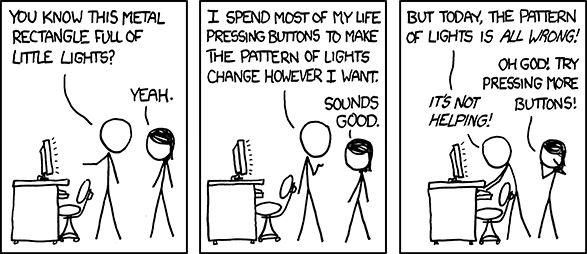Books arrived yesterday.
Very excited. Am still super busy making stock, but have had a quick peruse.
You guys are correct, to get stuck in straight away, I was missing a book - namely:
'Python Programming for the Absolute beginner' which is the prequel to the book I got.
Luckily i found it online as a PDF, and now have that book on my tablet... So I'm all sorted.
Geany is just great. I love it.
I've made a basic snake game, but that's pretty much just following an online tutorial, so I can change the easy stuff, but have no idea how to do anything beyond what was expressly laid out in the tut.
This is where I am very very happy with 'Learning python 5th ed.'
This volume is a whopper. Impossible to hold and read... it has to be propped some way.
But it is *thorough* and focuses on the core language itself, not on how to create applications... so by going through the book which will be a self paced course... I will understand and *know* Python. It is a great foundation to lay and I am so pleased the book goes into such extensive and repetitive detail on every little thing.
I can see why people who choose Python because they need to get things done quickly and want to get up to speed as quickly at possible would find the book insufferably tedious and needlessly verbose.
This book is not meant for those people. It is meant for people like me who would love to go study the subject full time in a college setting, but due to circumstances are forced to rely on themselves and whatever free time they can snatch. People who are happy to take things as slowly and thoroughly as they need to.
This book is designed to be digested slowly over a course of months, and you take it one page at a time... starting right at the beginning.
As a reference manual it is completely inappropriate... but that is what the 'Python Pocket Reference' is for - it was designed to be a companion book and is much much smaller than I imagined. Literally pocket sized.
I plan to go through the Absolute Beginner series at the same time as 'Learning Python'.
It's all very exciting.

^_^


